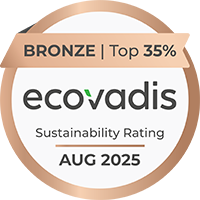Introduction
I was training a group of consultants in coaching skills in Poland a few years ago and had just completed an exercise with them demonstrating the benefits of setting outcome-focused rather than problem-focused goals. This was an exercise I had conducted hundreds of times in the UK with consistent and conclusive results – namely that the participants could all see how outcome-focused goals created a more resourceful mind-set for coaching clients than problem-focused goals. But this time the exercise created a different response: most of the group actively disliked the exercise and distrusted the very positivity of the message. I was puzzled until they explained to me that culturally it was not seen as a good thing to embrace too much positivity – that caution, and even pessimism, was a wiser mind set, given the history of the country.
This took me aback at the time but since has served to remind me that in a multi-cultural country like the UK, and in a context where coaching is gaining strength world-wide, we need to be constantly mindful of cultural differences when we coach and when we train coaches too.
Addressing cultural blind-spots
At worst we can be cultural critics, simply asserting that ‘our’ ways are the best. Most people who teach or who come on coach training programs are not in this category: broadly speaking they are liberal and culturally respectful. However even the best-intentioned of us can have cultural blind-spots. Academic research, though helpful, is limited in its scope: even the most celebrated authors on culture such as Geert Hofstede acknowledge that their research can only point us to somewhat generalised conclusions. Cultural identity in the 21st Century can be a very complex and nuanced issue: if as an example, you are born in the Middle East to parents of two nationalities, educated in the UK and the USA, work for a multi-national company and communicate globally via social media how ‘fixed’ can your cultural identity be? We are in an age where we need to think in terms of multiple cultural influences on each individual.
Culture of course is a social construct and we train and coach individuals for whom cultural influence is just one important part of their make-up – let’s make sure we don’t forget their uniqueness at the same time as being mindful of their cultural influences.
Some of the precepts and practices of coaching as it is taught in the West cannot be applied unthinkingly across all cultural contexts. As one small example, personal goal-setting for individual coaching clients tends to be seen as a must-do, whereas in some cultures individual goals tend to be less important than goals aimed at the collective good, and may even be frowned upon. Similarly, we often assume that giving coaching clients feedback on their behaviour is an essential component of good coaching, on the assumption that this will help our clients build self-awareness, perhaps ignorant of the fact that in some cultural contexts personal feedback can be seen as a personal attack!
Universal learning requirements
One way to develop our intercultural learning and flexibility is to focus on the learning processes that underpin all coaching. One way of going about this is to think of some universal learning requirements and look at how coaching could approach these in culturally flexible ways. Here are some examples:
Insight: the extent to which someone understands what needs to be developed to allow them to be more effective. Remember feedback is just one way of helping with this. You can try:
- Encouraging self-reflection and observation
- Learning from role models: observing and comparing
- Use of theory
- Creative techniques such as art or poetry
Motivation: the degree to which someone is willing to invest the time and energy it takes to develop. Understand that different cultural influences create different values and motivators for learning and development including:
- Money, autonomy, respect, achievement, recognition – Individualistic values
- Group achievement, relationship, well-being of family or group – Collectivist values
Capability: the extent to which someone has the skills and knowledge that are needed. Some capabilities are regarded as important virtually everywhere, e.g. reliability and trustworthiness, competence in communication and problem-solving, however:
- Some dimensions of effectiveness vary, e.g. levels of assertiveness, risk–taking
- Learning effectiveness varies in cultural contexts e.g. theoretical v hands-on approaches
Real-world practice: the extent to which someone is able to practice their learning in reality, e.g. in work. Remember that:
- Some cultures are more open to risk-taking in their actions than others – and risk undervaluing reflection and review
- Some will only commit to action when they have intellectually tested the theory first – and risk ‘paralysis by analysis’
These variations can be influenced hugely by organisational culture and individual personality too.
Accountability: the extent to which someone experiences a sense of obligation and commitment. Remember that:
- Some clients will experience primary accountability to themselves
- Some clients will experience primary accountability to a social group such as team or family
- Some cultures make accountabilities extremely clear – e.g. contracts and objectives, whilst others rely on relationship and implicit trust, and formal action plans etc. may even be seen as insulting
In addressing issues of cultural complexity in coaching I believe it is important we approach the task with a sense of optimism and positivity. Inter-cultural learning is a global necessity and a force for social optimism – coaching should be at the forefront.







